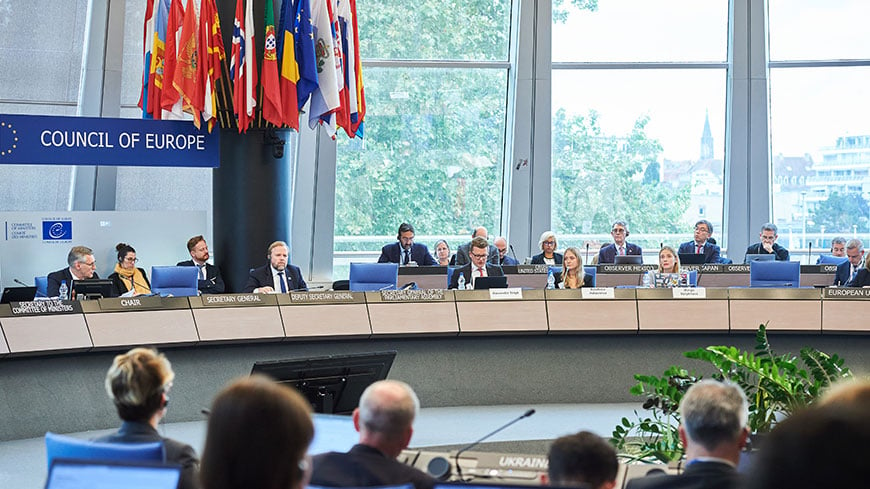The Council of Europe is the main human rights organization on the continent. 2024 marks the 75th anniversary of the Council of Europe, an opportunity to raise awareness of the positive impact the Organization has had for three quarters of a century. Founded in 1949, it is the oldest European intergovernmental organization representing 46 member states. Since its creation the The Council of Europe represents a fundamental pillar for the construction of a united and democratic Europe.
The values from which it starts the intergovernmental organization
The Council of Europe, although not as visible an institution as the European Union, has a profound and concrete impact on the daily lives of millions of European citizens. The main objective is to avoid the atrocities of the past, by promoting cooperation and dialogue between European countries. The Council of Europe guarantees respect for fundamental human rightsestablishing a common regulatory framework through the European Convention on Human Rights (ECHR).
You too can rediscover the pleasure of staying informed!
Your support helps protect our independence so that we can continue to produce quality journalism that is open to all.
Support us
The main objectives achieved by the Council of Europe
The Secretary General celebrated the 75th anniversary of the Organization in Strasbourg by taking stock of the main achievements of the Council of Europe. He stressed that the ECHR (signed in 1950 in Rome) constitutes the main pillar of the Council of Europe's system of human rights protection. The Convention, together with the European Court of Human Rights, the judicial body which ensures compliance with the Convention, defines the fundamental civil and political rights of each individual. Everyone has the right to appeal to the European Court of Human Rights, ultimately, to enforce their fundamental rights and freedoms.
Abolition of the death penalty and prevention of torture
In collaboration with the ECHR, the Organization created other legal instruments that played an effective role in the fight against the abolition of capital punishment. In 1983, it adopted Protocol No. 6 of the European Convention on Human Rights and more recently in May 2002 Protocol no. 13 on the abolition of the death penalty in all circumstances. The Council of Europe has made the abolition of the death penalty a precondition for joining the organization. He thus created a death penalty-free zone for more than 700 million people.
Also to monitor prison conditions, he created the Committee for the Prevention of Torture and Inhuman and Degrading Treatment. To facilitate monitoring, he asked the 46 member states to authorize the Committee to regularly carry out surprise visits to places of detention.
Recent milestones achieved on gender equality, minors and AI
In 2007, the Council of Europe adopted the Convention for the Protection of Children against Sexual Exploitation and Sexual Abuseis the first instrument that criminalizes sexual abuse of children, even at home or within the family. The convention entered into force on July 1, 2010. Furthermore, in 2019, Tunisia became the first non-European country to adhere to the Convention.
Another step taken is the 2011 Istanbul Convention against violence against women and domestic violence. This is a decisive step forward in the field of justice, democracy and gender equality.
In March this year, she signed up the Framework Convention on Artificial Intelligence, Human Rights, Democracy and the Rule of Law.
New challenges and the future of the Council of Europe
The priority is Russia's war against Ukraine, which marked the return of armed aggression in Europe. On February 25, 2022, the Committee of Ministers suspended Russia's representation rights in the Council of Europe and on March 16, Russia was excluded from the Organization. At the 4th Council of Europe Summit in May this year, it was decided to create a damage register. To ensure support for Ukraine and recognition of responsibility for the war of aggression currently being waged by the Russian Federation.
It will also be necessaryupdating of legal actions in environmental and human rights matters due to the influences of climate change.
Another challenge concerns freedom of the press, which starts from the paradigm according to which there can be no real democracy without freedom of expression and free and pluralistic media. This is why, on October 2, the Parliamentary Assembly of the Council of Europe published resolution 2571 (2024) in which it invites the main States involved in the persecution of Australian journalist Julian Assange, in particular the United Kingdom United and the United States, to reinstate measures to protect these fundamental freedoms.
The Council of Europe has played and intends to continue to play a fundamental role in building a Europe that is more united, more democratic and more respectful of human rights. Its 75th anniversary represented an important opportunity to celebrate successes achieved and reflect on future challenges.


